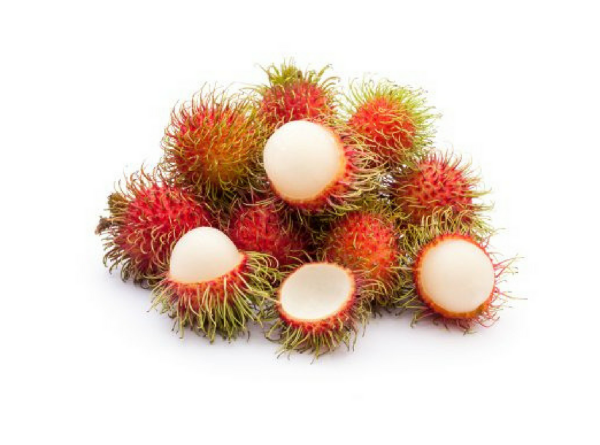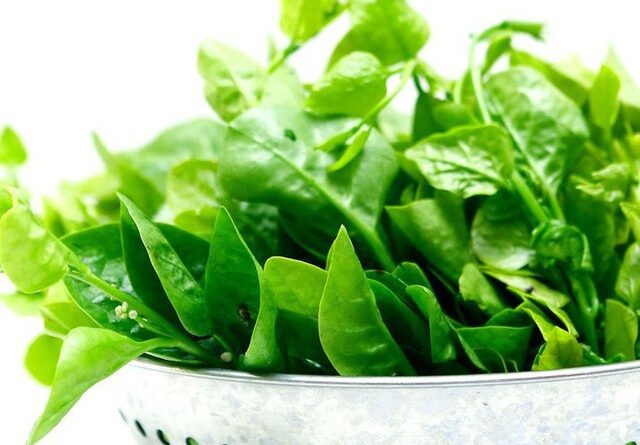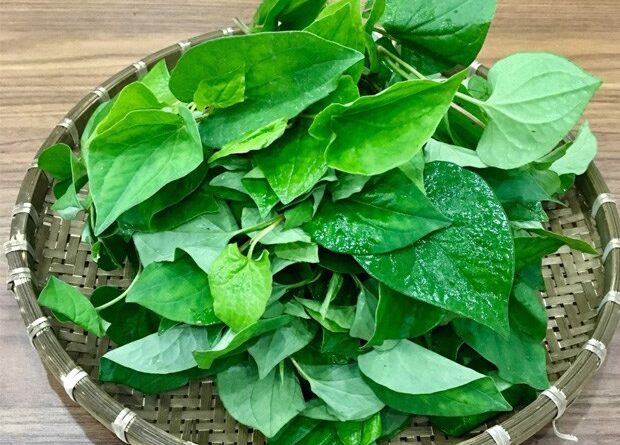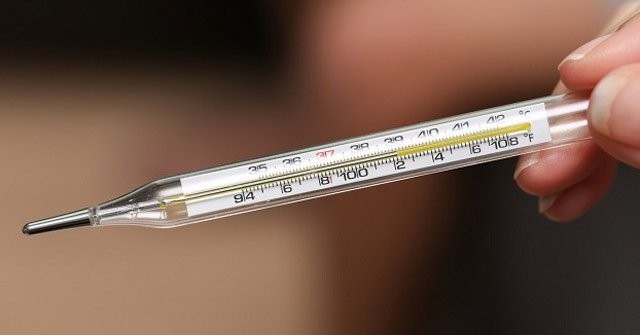
Fever is a natural defense mechanism that the body uses to fight off infections and illnesses. However, it must be treated immediately when fever is high or persistent.
Waiting until symptoms worsen can lead to further complications and worse outcomes.
Understanding how fever works can help you diagnose a fever and provide the appropriate treatment.
This article will show you how to naturally and rapidly cool a fever, including identifying fever symptoms.
What Is A Fever?
Fever is a natural defense mechanism that the body uses to fight off infections and illnesses.
It is a response the body has to boost the immune system and when your body fights an infection, it raises the temperature.
It sends out cytokines
The most likely cause of fever is infection by microbes like viruses or bacteria, which can be easily picked up during day-to-day living.
However, other causes may be:
- Autoimmune disorders
- Toxins
- Infections
- Heatstroke
- Organ Failure
How Do You Know If You Have A Fever?
There are many obvious signs that can indicate the presence of a fever. For instance, you may experience:
- A feeling of intense warmth within the body.
- Physical chills.
- Sweating.
- A rapid heartbeat.
- Nausea and vomiting.
Cooling Treatment Options For Adults
There are many ways to naturally cool a fever in adults.
You can try:
Using A Cold Compress
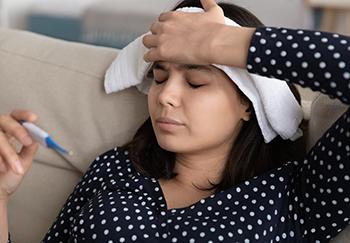 One of the best options is using a cold compress, which can be made at home or bought from a pharmacy.
One of the best options is using a cold compress, which can be made at home or bought from a pharmacy.
This can provide relief without any risks of adverse effects.
Another option is to use ice packs on the forehead, neck, chest, and back. When using ice packs, it’s important to remember that they should be used for up to five minutes every 20 minutes or so to avoid frostbite.
Take A Tepid Bath
Many people think of taking a cold bath when they have a fever.
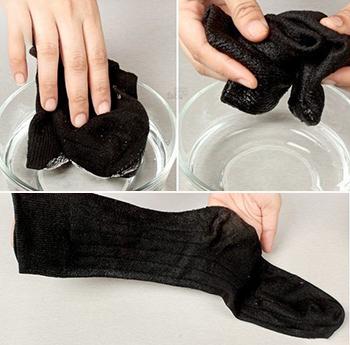
This might seem appropriate at first glance, but doing so can raise your body temperature even more.
Taking the time to take tepid baths is not only good for you, but it can also help with muscle fatigue and stress relief.
Vinegar Socks
If you have high fever, just soak your socks in vinegar.
Keep them on your feet for about 20 minutes, and refresh them every half hour until the temperature begins to drop. You can use regular or apple vinegar.
Try A Freshly Brewed Herbal Tea
There are many teas that have been shown to assist in reducing the signs and symptoms of fever, including:
Yarrow Tea:
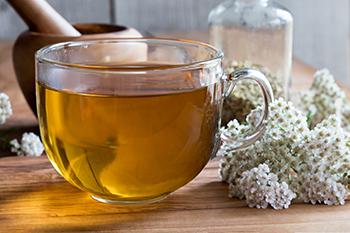 To cool yourself down from a fever, make a cup of yarrow tea.
To cool yourself down from a fever, make a cup of yarrow tea.
The herb will open your pores and trigger the sweating that accelerates a fever toward its end.
Steep a tablespoon in freshly boiled water for 10 minutes, and then drink it until you start sweating!
Yarrow tincture is one that everyone should have in their herb kit! Nicole likes this botanical for its antibacterial properties. It is effective for ear infections, wound care, relieving fevers, shortening the duration of the cold and flu, and helping to improve relaxation during illness. You can buy your own from the Apothecary!
Ginger Tea:
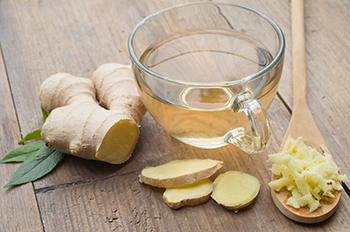 To make a ginger tea, use half a teaspoon of minced ginger root in 1 cup just-boiled water. Strain and drink it down quickly before the water cools off.
To make a ginger tea, use half a teaspoon of minced ginger root in 1 cup just-boiled water. Strain and drink it down quickly before the water cools off.
Ginger is well known for its sweating properties and easing cramps, so this will be beneficial to you.
Elderflower Tea:
Another natural drink, elderflower tea, helps us sweat.
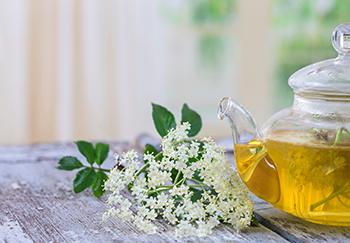 It is also suitable for other problems associated with colds and flu-like mucus congestion.
It is also suitable for other problems associated with colds and flu-like mucus congestion.
To make it, mix two teaspoons of the herb in a cup of boiled water and let the mix steep for at least 15 minutes before straining out the leaves.
Drink three times a day as long as you have a fever or continue to feel sick.
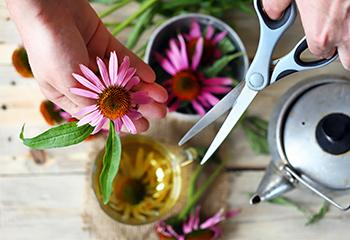
Echinacea Tea:
An echinacea-based tea has been used for centuries and is a trusted source of boosting your immune system.
Drinking the tea when you first start to feel some sense of illness can help you fight an infection faster so that it doesn’t last too long.
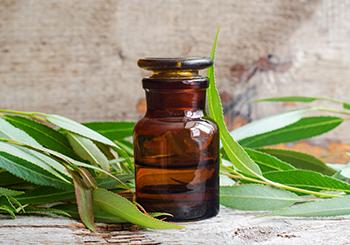
Willow Bark Infusion:
If you are looking for some natural substitutes to over-the-counter pain relievers such as anti-inflammatories, consider willow bark!
Willow bark can be made into an extract and taken as a tincture, made up as a tea, or in powdered form.

Opt For More Vitamin C
Orange juice and other fruit juices such as cranberry juice rich in vitamin C are good choices when you have a fever.
Vitamins, especially vitamin C, can help your immune system fight off infection by strengthening cellular defenses and giving your immune system a boost to help reduce the fever.
Turn Up The Spice
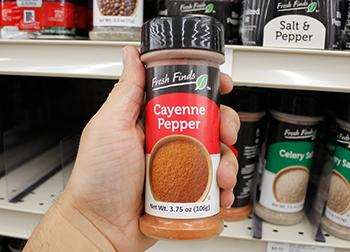
Cayenne pepper is a well-respected ingredient that can be added to your foods when you have a fever.
It contains capsaicin, an alarmingly hot component found in many types of peppers.
This spicy seasoning will make you sweat and rapidly distribute blood through your body.
Opt For Soups
 Eating little and often when suffering from a fever is always the best advice, as the digestive system can weaken under the threat of infection or disease.
Eating little and often when suffering from a fever is always the best advice, as the digestive system can weaken under the threat of infection or disease.
Soups are by far the best meal to have, and having soups loaded with herbs and spices such as basil, capsaicin, and pepper will produce sweat which will help cool the body down.
Broth-based soup provides energy and nutrients to fight disease or lower a fever.
Light And Airy Clothing
The body’s heat will escape through your clothes and provide some relief to the surrounding environment.
Wearing light, breathable clothing is recommended as it ensures that you don’t overheat, which is especially important if your fever happens when the weather is hot too.
Hydration To The Max
If you are experiencing difficulty keeping food down or have no appetite, it’s best to drink!
Water, iced tea, or very diluted juice are all great options to sip as much as you can manage, or the alternative is to suck on ice chips, which can also reduce a fever temperature.
Rest
This seems like the most simple piece of advice ever. Still, resting is repairing when your body is fighting something that can cause a rapid onset fever.
Rest as much as possible.
Cooling Treatment Options For Children
To quickly cool a fever, there are a variety of treatment options.
One way is to apply a cold, wet cloth on the forehead or neck and keep it on for five minutes.
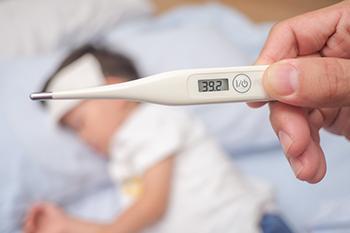
Another option is to put protected ice on the chest or back and keep it on for as long as possible.
When cooling a fever, you should also stay hydrated and avoid caffeinated drinks like coffee, tea, and soda because they can cause dehydration and worsen the fever symptoms.
Additionally, you should avoid placing children in direct sunlight because it can cause an escalation in a fever.
When To Seek Medical Assistance
A fever is certainly not always a bad thing!
Yes, it may feel terrible at the time, but it is the body’s way of ridding whatever is happening inside that you simply cannot see.
However, there are some instances where, no matter what you try, the fever just will not be controlled. In this instance, it’s always best practice to seek medical assistance.
For Adults:
Suppose your fever goes above 103°F (39.4°C) or doesn’t go down within two days. In that case, a call to the doctor is warranted as you may also be experiencing symptoms such as severe pain in any part of your body or shortness of breath and confusion.
Adults with these symptoms should also seek immediate medical attention for further diagnosis and treatment.
For Toddlers To Young Adults:
If your child is experiencing irritability or muscle aches, they could benefit from medication.
If their fever goes above the 102°F (38.9°C) mark, it may be necessary to use pharmaceutical interventions to bring it right down.
If your child is uncomfortable or distressed, or if the fever persists for more than three days, you should consult with a doctor.
For Infants:
Babies up to 3 months old be seen by their doctor if they have a temperature above 100.4°F (38°C).
If your baby has other symptoms, or the fever goes beyond 102°F (38.9°C), you should call for medical attention immediately.
This is because children ages 6 months to 2 years who have temperatures at or above 102 degrees can be offered over-the-counter medication under supervision by their doctors.
Take Away
A high fever can be very serious.
However, an occasional lower temperature fever is nothing to worry about as it helps your body heal itself!
All over-the-counter medicines generally have risks and side effects just like other treatments for this condition, so instead of heading for the pharmacy, you could try one of these alternative remedies first. Here are also a few of Nicole’s top picks that are found in the Essential Winter Defense Bundle. Whether maintaining lung health, boosting immunity, or reducing fevers, each herb supports overall well-being this winter and beyond.





